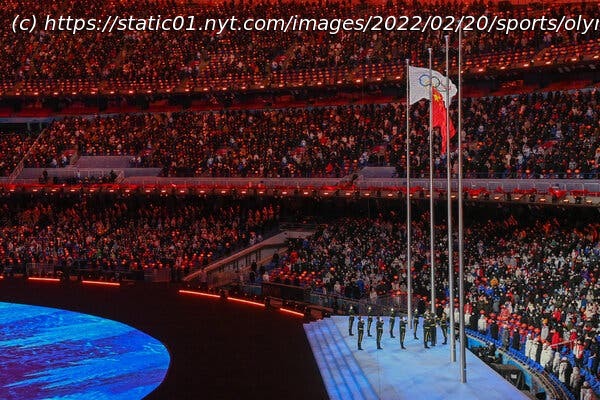The Games ended without disaster but overshadowed by a doping scandal, rising tensions in Europe and anxiety over the future of the sporting movement.
All along, Chinese officials insisted that the Olympics were not about politics, but rather sports. In the end, controversy and scandal haunted those, too. For all of China’s efforts to carry on the Winter Games with a festive spirit, Beijing 2022 unfolded as a joyless spectacle: constricted by a global health disaster, fraught with geopolitical tensions, tainted once again by accusations of doping and overshadowed by the crisis in Ukraine. As athletes marched into the Bird’s Nest stadium in Beijing on Sunday night to close the most contentious Olympics in years, China could celebrate pulling off the Games on schedule, despite everything. It is a success, however, as measured by the low bar of avoiding total disaster. The most indelible memory of these Winter Olympics — beside images of Olympic workers and volunteers enrobed in hazmat gear — will very likely be that of a 15-year-old Russian skater falling on the ice after being allowed to compete despite a test showing traces of a banned heart medicine. The skater, Kamila Valieva, broke into tears after her dismal performance, only to be berated by her coach, leaving organizers and observers alike to ponder how much they demand of athletes who are, after all, still children. The International Olympic Committee, which spent years fending off doubts about choosing an authoritarian nation as host, spent much of the past two weeks dodging controversy after controversy in Beijing. In addition to troubling issues raised by the Valieva episode, it faced questions about the conditions for athletes who isolated after testing positive for Covid; about the fate of Peng Shuai, the tennis player and former Olympian who accused a senior Chinese official of sexual assault; about the inevitable injection of politics into an event meant to rise above them. “What can one say, except to heave a sigh,” said Orville Schell, the director of the Center on U.S.-China Relations at the Asia Society in New York. “Such an august occasion, designed to promote openness, good sportsmanship and transnational solidarity, ended up being a heavily policed, brittle, Potemkin-like simulacrum of the Olympic ideal.” The I.O.C. has since revised the selection process for host cities, in part to avoid the chance of once again making a Faustian bargain like the one seven years ago, when Beijing edged out Almaty, the former capital of another authoritarian nation, Kazakhstan. At the end of Sunday’s ceremony, China will pass the torch for the 2026 Winter Games to the Italian cities of Milan and Cortina d’Ampezzo. The Summer Games will be in Paris in 2024, in Los Angeles in 2028 and in Brisbane, Australia, in 2032 — places where it is hoped that questions of human rights will not dominate the preparations. China became the first nation to organize winter and summer editions in the same city, an accomplishment that the country’s leaders held up as a triumph of Communist Party will.






